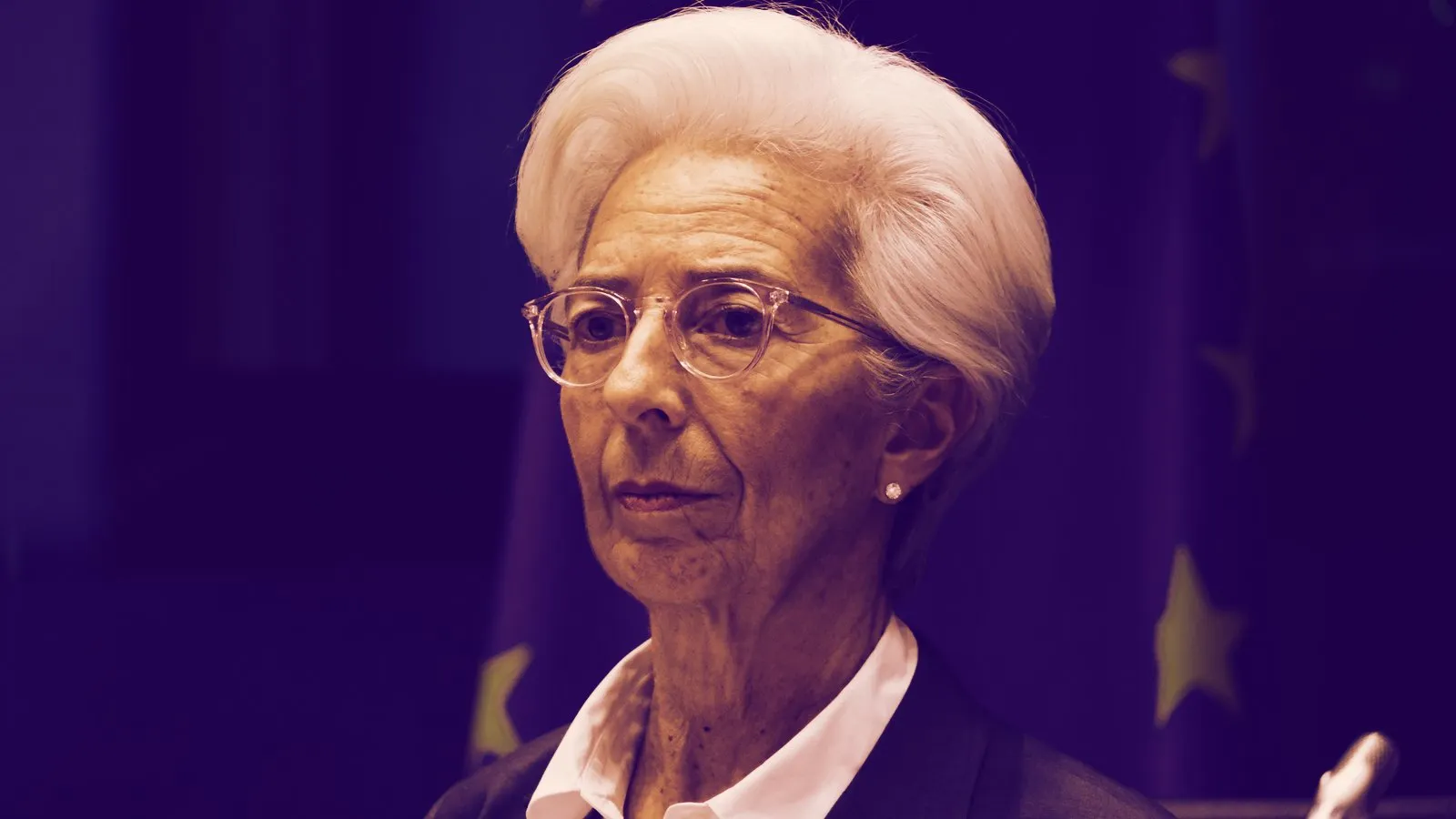In brief
- Christine Lagarde, president of the ECB, penned an article about the possible introduction of a digital euro.
- She spoke of a digital euro that could complement cash.
- However, Lagarde explained why Bitcoin can't yet fulfill "all the functions of money."
Christine Lagarde, the President of the European Central Bank, has come out in favor of “possible introduction of a digital euro,” and trashed Bitcoin as a coin that does “not fulfill all the functions of money.”
In an article published today in L’ENA hors les murs, a magazine for former students of a school that trains France’s civil servants, Lagarde said that a digital euro could be “important.”
It could complement cash, future-proof the euro and rival digital currencies minted by other countries’ central banks. It could also create new jobs, she said.
What’s more: “A digital euro would also be an emblem of the ongoing process of European integration and ultimately help to unify Europe’s digital economies.”
But all the same, Lagarde said that “crypto-assets pose risks.” Sure, Bitcoin avoids the “double-spending” problem, she said, in reference to the technology that requires transactions to be validated by nodes on the Bitcoin network.
But the main risk, she said, “in relying purely on technology and the flawed concept of there being no identifiable issuer or claim.” This, she said, is why cryptocurrencies like Bitcoin are “highly volatile, illiquid and speculative, and so do not fulfil all the functions of money.”
Lagarde also said that private stablecoins, such as Tether or the upcoming Libra stablecoin, also “pose serious risks.”
“If widely adopted, they could threaten financial stability and monetary sovereignty,” she said. If the issuer couldn’t absorb losses, a run could occur. And since they’re privately run, central banks, like the ECB, couldn’t determine a country’s monetary policy.
In her article, Lagarde reiterates claims she, and the ECB, have made several times before. At the start of the month, she opened up the matter to the European public in a lengthy and rather dull survey. Those with the stamina to fill it out shall shape the future of the Eurozone.

